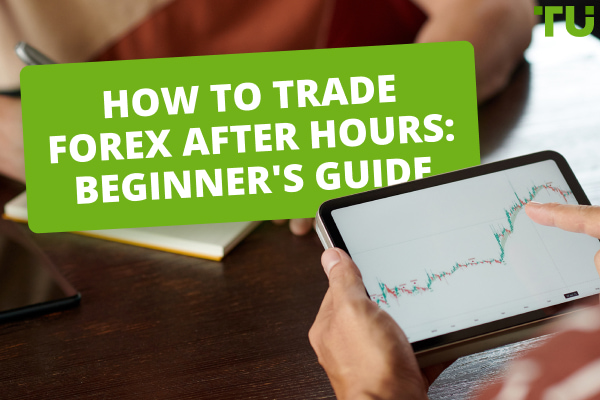Is Margin Trading Halal Or Haram In Islam?
The permissibility of margin trading in Islam remains debatable without a definitive answer.
On the one hand, some Islamic scholars argue that leverage trading can be considered halal as long as the trader isn't subjected to interest charges on borrowed funds and the broker doesn't derive direct benefits from the trade.
On the other hand, concerns arise from the potential violation of Shariah principles when loans are used as a service within a business context. Consequently, the consideration that makes leverage trading possibly haram is its involvement in business operations based on loans, aiming to generate profit from the loan—an activity fundamentally associated with riba (interest).
If you've encountered Forex brokers offering "Islamic accounts”, it may initially seem curious. Still, it serves as a means to accommodate Muslim investors with specific religious considerations related to finance.
In conventional Forex trading, overnight financing charges known as "swaps" are standard. These swaps represent interest, which conflicts with Islamic principles prohibiting riba (usury). In response to this concern, forex brokers introduced Islamic accounts, also known as swap-free
-
What is margin trading?
Margin trading empowers you to command a more significant financial position by borrowing part of the overall cost from a broker. You need to provide a "margin," a percentage of the asset's total value. This approach magnifies both potential profits and losses.
Let's say you want to invest in stocks but don't have the total amount to purchase them. With margin trading, you can borrow funds from your broker to buy more shares than you could with your capital alone. If the stock value increases, your returns will increase. However, if the stock value decreases, your losses will also magnify. This illustrates how margin trading intensifies both the upside and downside potential of financial transactions.
-
Is leveraged trading illegal?
Leverage trading is typically legal, subject to regulations that establish specific limits. These limits vary depending on the asset class being traded and the jurisdiction governing the transactions, especially for retail investors. Regulatory authorities implement these restrictions to balance allowing the benefits of leverage and mitigating potential risks for individual investors. Traders need to be aware of and adhere to these regulatory frameworks to ensure compliance and responsible trading practices.
-
Can you use leverage in Islam?
Leverage trading is typically legal, subject to regulations that establish specific limits. These limits vary depending on the asset class being traded and the jurisdiction governing the transactions, especially for retail investors. Regulatory authorities implement these restrictions to balance allowing the benefits of leverage and mitigating potential risks for individual investors. Traders need to be aware of and adhere to these regulatory frameworks to ensure compliance and responsible trading practices.
-
Can you use leverage in Islam?
Whether leverage is permissible in Islam sparks ongoing debate among scholars. Diverse perspectives exist, with some arguing that the permissibility hinges on factors such as intention, risk management practices, and the specific nature of the traded assets. Conversely, some scholars consider leverage potentially enabling activities that contradict Islamic principles, rendering it haram. The discussion underscores the nuanced interpretations and varying viewpoints within Islamic finance.
-
Is trading on margin gambling?
While trading on margin itself is not equivalent to gambling, it can take on a gambling-like nature if certain practices are prioritized. It occurs when individuals focus on short-term gains at the expense of proper risk management. Overleveraging and chasing quick profits without considering risk, personal financial conditions, and ethical considerations can lead to reckless behavior and substantial financial losses.
Margin trading may resemble gambling when:
-
Prioritizing short-term gains over long-term wealth-building
-
Overestimating risk tolerance
-
Relying solely on speculation without fundamental analysis
-
Lack of a well-defined trading plan and strategy
It's important to note that the acceptability of leverage trading in Islam is contingent on individual interpretations and circumstances.
-
Can I trade on margin in a Muslim account?
The question of whether leverage trading, the use of leverage, or margin trading is considered halal in Islam is intricate and lacks a straightforward answer. Various Islamic scholars hold different opinions on this matter, and an individual's decision to participate in such activities ultimately depends on their interpretation of Islamic principles.
Why is Leverage trading halal?
There are a few key reasons why leverage trading is widely considered to be halal and permissible under Islamic finance principles:
-
No interest (riba) is involved - Leverage allows traders to take more prominent positions using borrowed capital from the broker. But unlike a traditional loan, no interest or fee is charged for the borrowed funds.
-
No speculative gambling: Leverage is not meant for reckless speculation but rather as a tool for efficient capital management. Trading with leverage is permissible when done with the right intentions.
-
The trader bears risk - Any losses incurred from leveraged trading are borne entirely by the trader. The broker does not take on risk, so it is not considered unethical.
-
Greater economic utility: Leverage provides larger gains from correct speculative trading of assets, allowing productive investment. This is in line with encouraging economic utility.
-
Asset-backed - In spot Forex trading with leverage, the underlying asset being exchanged is currencies with inherent value. This avoids speculation in haram derivatives.
Leverage magnifies potential gains and losses on real asset trades made for the right reasons. It does not involve unethical interest or gambling, making it broadly acceptable under sharia principles.
Best Forex brokers

Why is margin trading haram?
There are a few key reasons why margin trading is often considered haram or impermissible under Islamic finance principles:
-
Involves interest (riba): Margin trading requires paying interest on the loan taken from the broker to fund the margin. This interest or fee is considered riba and prohibited.
-
Promotes speculative gambling: The high leverage levels provided in margin trading accounts are conducive to excessive speculation and gambling, which is forbidden.
-
Unearned profits: The interest charged on margin loans means some profits are derived unethically rather than through effort.
-
Disproportionate risk: Extreme leverage enables unmanageably high risks not justified by the account capital.
-
Lack of asset backing: Derivative CFD instruments commonly traded on margin lack inherent value and direct asset backing.
-
Potential market manipulation: Highly leveraged trading distorts markets and asset prices, which can violate economic ideals.
According to most sharia scholars and bodies, paying interest on margins, combined with the excessive speculation and unethical practices it enables, makes margin trading impermissible. It violates the core tenets of Islamic finance.
Why is leverage trading halal?
Several arguments support the view that leverage trading can be considered halal in Islam:
-
Leverage doesn't inherently involve interest (riba). Traders borrow capital and pay a fee for it, avoiding interest on a loan.
-
Risk is shared between the trader and the broker, providing leverage and distinguishing it from riba-based lending.
-
The underlying traded assets, such as currencies or commodities, are considered halal. Leverage facilitates larger trades but doesn't alter the nature of the assets.
-
Leverage can be used responsibly without excessive risk or greed, as traders can choose to determine the amount of leverage they use.
-
Certain Islamic finance scholars and institutions approve leverage trading within specified limits.
Supporters argue that leverage is not prohibited, emphasizing the importance of responsible trading to align with Islamic principles.
Why is margin trading haram?
Leverage enables and promotes excessive speculation and gambling (maisir), which is prohibited.
“The risks associated with trading CFDs using leverage are not condoned Islamically and so traders must desist from such practices” – Source.
The potential losses from leveraged trading can far exceed the invested capital, violating the principle of avoiding excessive risk. The high leverage ratios offered, up to 1:500 in forex trading, border on exploitation and surpass acceptable risk-sharing norms.
Traders using leverage speculate on currency and commodity prices rather than investing based on intrinsic asset values. According to most scholars, all contemporary futures, options, and derivatives trading forms are deemed inappropriate. Leverage facilitates trading in these instruments.
Overall, critics argue that leverage enables forbidden activities in Islamic finance – gambling, speculation, greed. Hence, it cannot be considered permissible.
Is leverage trading halal or haram?
The permissibility of leverage trading in Islamic finance is subject to varying opinions among scholars. The decision to participate in such activities ultimately depends on the individual and their interpretation of Islamic principles.
Consider the following points:
-
Debt and borrowing: Some scholars argue that leverage trading involves debt and borrowing, which could be deemed haram in specific circumstances. The concern is that debt may lead to exploitation and harm, especially if someone faces financial difficulties.
-
Excessive risk: Leverage trading inherently carries significant risk, which some scholars believe contradicts the Islamic principle of avoiding gambling or exposing oneself to unnecessary danger.
-
Uncertainty and speculation: Leverage trading introduces an element of uncertainty and speculation, which might be inconsistent with the Islamic emphasis on clarity and transparency in financial transactions.
-
Intention and purpose: The permissibility of leverage trading is also influenced by the intention and purpose behind its use. Some scholars may consider it permissible if the intention is to benefit oneself or others through legitimate means and risks are carefully managed.
Summary
The acceptability of leveraged trading within the Islamic finance framework hinges on the trade's circumstances. It involves a subtle evaluation of whether the transaction aligns with the principles of Islamic finance.
Islamic scholars hold diverse perspectives on this matter, recognizing that individual circumstances and intentions are crucial in determining the permissibility of leveraging in trades. The principles of Islamic finance emphasize ethical and responsible financial conduct, and the assessment of leverage trading involves considerations of risk management, intention, and adherence to Islamic principles.
In essence, the permissibility of leverage trading in Islam is a complex and debated topic, with the final determination often resting on the specific details and ethical considerations associated with each trade.
Team that worked on the article
Upendra Goswami is a full-time digital content creator, marketer, and active investor. As a creator, he loves writing about online trading, blockchain, cryptocurrency, and stock trading.
Professionally, he has been a marketing professional running his agency for three years now. His agency helps finance projects to grow with the help of internet technologies. Upendra Goswami is an active investor and enthusiast of stocks and cryptocurrency.
Knows about
trading, blockchain, cryptocurrency, stock trading
Alumnus of
JECRC UDML College of Engineering, Jaipur
Dr. BJ Johnson is a PhD in English Language and an editor with over 15 years of experience. He earned his degree in English Language in the U.S and the UK. In 2020, Dr. Johnson joined the Traders Union team. Since then, he has created over 100 exclusive articles and edited over 300 articles of other authors.
The topics he covers include trading signals, cryptocurrencies, Forex brokers, stock brokers, expert advisors, binary options. He has also worked on the ratings of brokers and many other materials.
Dr. BJ Johnson’s motto: It always seems impossible until it’s done. You can do it.
Tobi Opeyemi Amure is an editor and expert writer with over 7 years of experience. In 2023, Tobi joined the Traders Union team as an editor and fact checker, making sure to deliver trustworthy and reliable content. The topics he covers include trading signals, cryptocurrencies, Forex brokers, stock brokers, expert advisors, binary options.
Tobi Opeyemi Amure motto: The journey of a thousand miles begins with a single step.











